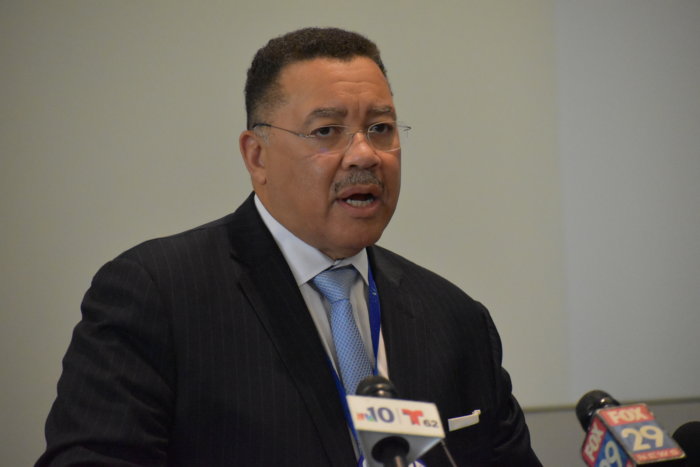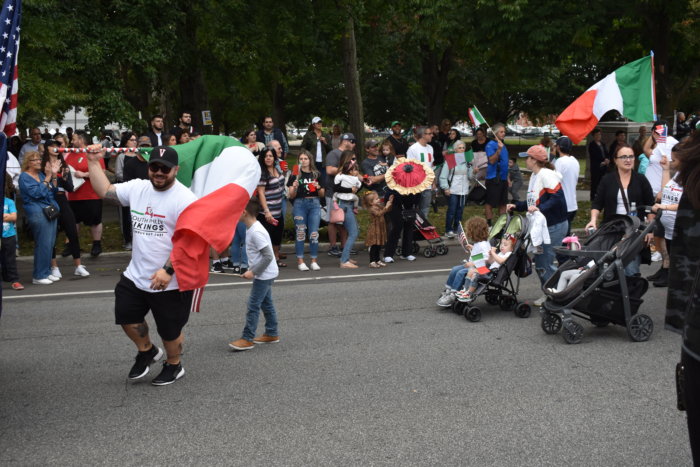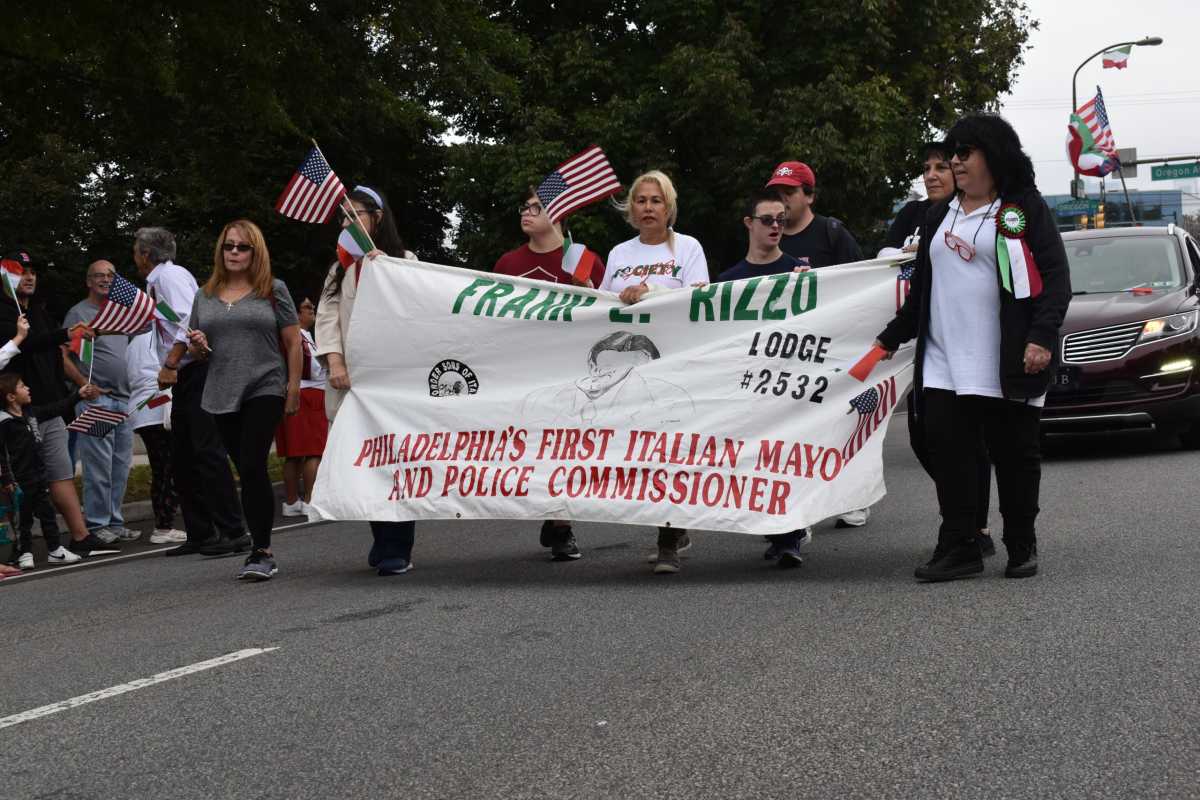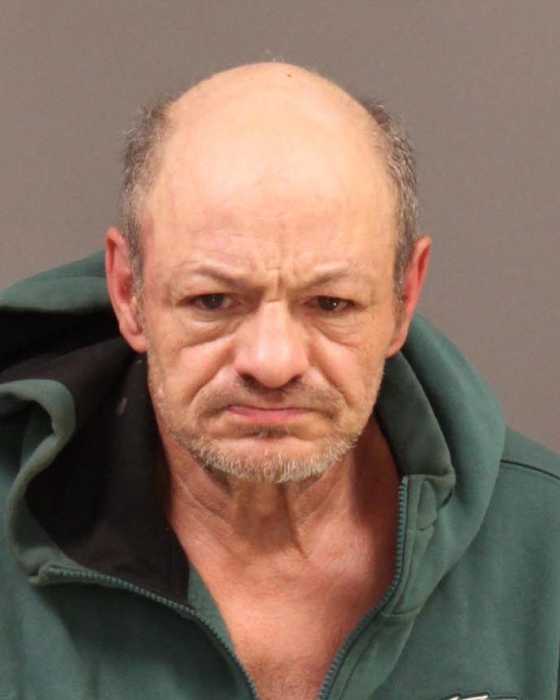Everyone was at Sunday’s Columbus Day parade — except the Italian explorer’s likeness.
The Christopher Columbus statue at South Philadelphia’s Marconi Plaza, the parade’s endpoint, remained enclosed in plywood, thanks to a last-minute decision by a state appeals court to overturn a local judge’s ruling.
A fence surrounding the statue was adorned with a few signs, including a poster proclaiming “Free Chris” and another praising the Court of Common Pleas judge who sided with pro-Columbus groups, Paula Patrick.
“Everybody did bad things. There’s so many people that did so many things,” Carol Tamburino, of South Philadelphia, said about Columbus’ checkered past. “It’s an attack on the Italians.”
“I think this is the greatest country in the world, but we can’t forget our heritage,” said Ivan Tancredi, who was born in Italy. “It’s a disgrace.”
Hours before the parade started, it looked as if the Columbus statue might be unveiled, for the first time since being covered up in June 2020 following violent clashes.

Patrick on Friday approved a motion filed by pro-Columbus groups and ordered the city to remove the plywood “forthwith” and permit Italian-American organizations to encase the monument in plexiglass.
Then, on Saturday, she issued another decree, allowing Columbus proponents to hire their own contractor to take down the wooden box.
Later in the day, the Commonwealth Court sided with the city which filed an emergency application to prevent the order from being carried out.
Kenney administration attorneys argued that revealing the statue would pose a public safety risk and said they were not given a chance to file a response before Patrick’s Saturday ruling.
Police resources were stretched thin this weekend due to other events, including the Broad Street Run, which also passed Marconi Plaza on its route, the city’s lawyers wrote.
“Uncovering the statue now risks triggering renewed violence that could easily spill out of control,” they said in the emergency application.
George Bochetto, an attorney representing pro-Columbus residents, called the threat of unrest “a myth.”
“It’s really just a delay tactic by the Kenney administration. The box is going to come down,” he told Metro. “We’re rock solid on the case. They’ve got no chance on the appeal. Zero. They’re going to lose.”
The city has also appealed an August ruling that prevented municipal workers from removing the monument.
Kevin Lessard, a spokesperson for the Mayor’s Office, said Sunday that “the statue will remain secure in its box until the city’s appeal is resolved.”
Kenney signed an executive order in February replacing Columbus Day with Indigenous Peoples’ Day on the city’s calendar. That change is being challenged through a separate federal lawsuit.
Most of the crowd at the parade had their backs to the sculpture, preferring to focus on the string bands and other marchers on Broad Street. However, there was plenty of anti-Kenney sentiment.

“People like Mayor Kenney shouldn’t have the authority to destroy our history,” Gene Cortopassi, who lives in New Jersey, said.
Monica Miraglilo, a Black woman whose husband is Italian-American, said she doesn’t want history to be erased.
“This is what we want to be a part of,” Miraglilo, of East Falls, said. “It’s a beautiful thing.”
Columbus’s legacy, particularly his treatment of Native Americans, has come under a renewed focus nationwide in recent years, as communities struggle to reexamine figures of the past.
Vigilantes, some armed with weapons, showed up to Marconi Plaza to “protect” the sculpture in the aftermath of protests and rioting following George Floyd’s killing in summer 2020.
Several clashes occurred near the statue, and, in August of that year, the Philadelphia Art Commission approved a request from Kenney’s administration to relocate the monument.
The statue was commissioned by an Italian American organization for the Centennial Exhibition of 1876 and moved from Fairmount Park to Marconi Plaza in 1976.




























